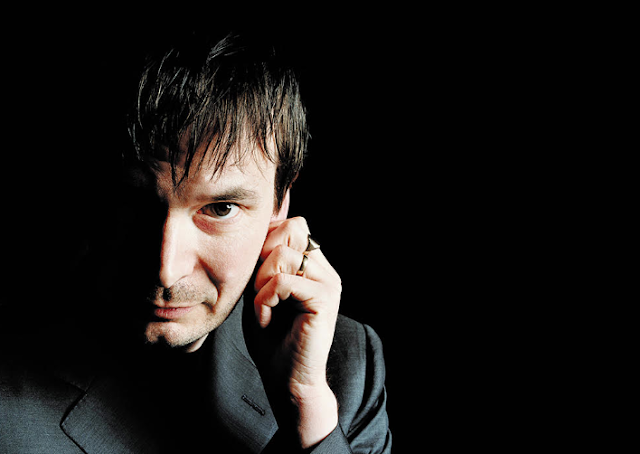Dirty, divorced and often depressed. A stereotypical Scottish hardman, externally fierce and gruff, seeks willing companion for
decades long bout of heavy drinking, detective work and self-destructive
behaviour. Unwilling to make an effort.
Detective Inspector John Rebus does not make a good personal
ad.
Yet, for the last 20 years, Ian Rankin has carried Rebus
with him - in this work, in his heart and always, always on his
mind. Is it any wonder that after spending 17 books in conversation with the
Strawman of Edinburgh, a break-up would eventually have to come?
But a break can bring a lot of things. When Inspector Rebus
was forced into retirement two years ago, there were fears that freed from the
trials of the no-nonsense cop, the creator would find greener and happier
pastures to roam in. Nothing could be further from the truth.
“He did become very real. I think he even became more real
to readers [than to me]. Readers were more concerned about Rebus’ health and
well-being than they were of my own health and well-being. It was a real wrench
for readers when they knew he was going to retire. But they seem to have come
along with me in my new adventures since then,” says Rankin.
“There had to be a parting of the ways between me and Rebus.
I mean, it was 20 years, 17 books, there had to be a parting of ways
eventually. Earlier this year, I wrote a short story for a charity event which
was Rebus in retirement and that went down well. Not only did it go down well
with the readers, it was also nice to write about him again. I guess that
proved to me that he hadn’t left the building. He’s still there in a wee
compartment somewhere inside my head, just waiting to be let loose again. So I
don’t think we’ve seen the last of him.
“It’s funny, it felt the same [writing about him] now as it
did before. You can’t really change him. You can’t suddenly make him a sunnier,
gentler person. He is Rebus so he is still cynical, still wise-cracking, the
nice relationship that he has with [his partner] Inspector Siobhan was still
there and he was still wanting to feel useful. He is still wanting to
investigate crimes even though he has retired from the police. That’s the nice
thing about Rebus, he really did become his own character. It’s almost as
though he did have a life separate from mine. And besides that, he has always
been a very complex and interesting guy to spend time with.”
Rankin’s latest creation, The Complaints, features the
character of Malcolm Fox who, although a Scottish police officer, could not be
more different than John Rebus.
“Absolutely, they are total opposites. It came about when I
met a person who was an internal affairs cop and he started telling me about
their department and what sort of person you had to be in order to be a cop who
was investigating other cops. You’re basically hated by everybody - you’re
hated by your own kind as well as by the villains,” continues Rankin.
“It’s about being canny, playing by the rules, working well
as part of a team - all these things are exactly the opposite of Rebus. So I
thought it would be interesting to write about that kind of cop, and then take
that person and make him have to change - make him proactive. At the start of
the book, he’s almost like a spy or a voyeur - he’ll be sitting in a van
watching a cop to see if they are bent or not and then, suddenly, when he is
accused of something, he has to suddenly change and become more active.”
Through writers like Rankin and Stieg Larsson, crime fiction
has become the fastest growing genre of modern fiction. Yet when it comes to
praise and high awards, it is still very much a second-class citizen.
“I think it’s always been the case. There has always been a
gulf between literary fiction and genre fiction. But then someone like John
Banville comes along and starts to write crime fiction [under the name Benjamin
Black] and seems to respect the form and the genre. I think literary writers
are envious of some of the aspects of crime fiction - not just the sales - but
also the strong narrative drive that exists. The books have to have lots and
lots of plot and have to be very exciting. I think the gulf isn’t as wide as it
used to be because young novelists are being attracted to the crime genre,” he
says.
“I remember a couple of years ago, I met Ian McEwan and told
him that he was a thriller writer. The things that you find in good thrillers
are the things that he [McEwan] often uses to propel his books. 'Saturday' is a
great example of that - where an ordinary guy gets involved with a gangster and
suddenly his family are in peril. Any number of crime writers would have used
something like that as a premise to tell a story in the past.
“The funny think is that Ian McEwan said he was quite
flattered by that. He said he’d love it if that book was thought of as a
thriller. I think that he would agree with me that hopefully in a few years
we’ll just have good books and bad book and we won’t have this neccessity to
bracket everything off.”
This interview was first published in The Clare People newspaper in July of 2010

No comments:
Post a Comment